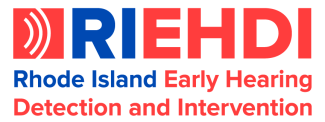Early Hearing Detection And Intervention
A hearing screening is a test to tell if an infant might have a hearing loss. Hearing loss can affect a child’s ability to develop communication, language, and social skills. The earlier children with hearing loss start getting services, the more likely they are to reach their full potential.

Why Hearing Screening is Important
- Hearing loss is the most common disorder in infants and affects one to three out of every 1,000 babies born each year.
- Genetic factors can cause hearing loss in some babies, especially if there is a family history of hearing loss.
- Delayed detection of hearing loss can lead to communication, social, psychological, behavioral, and educational challenges.
- The American Academy of Pediatrics recommends that all infants be screened by one month, diagnosed by three months, and start getting early intervention services no later than six months.
